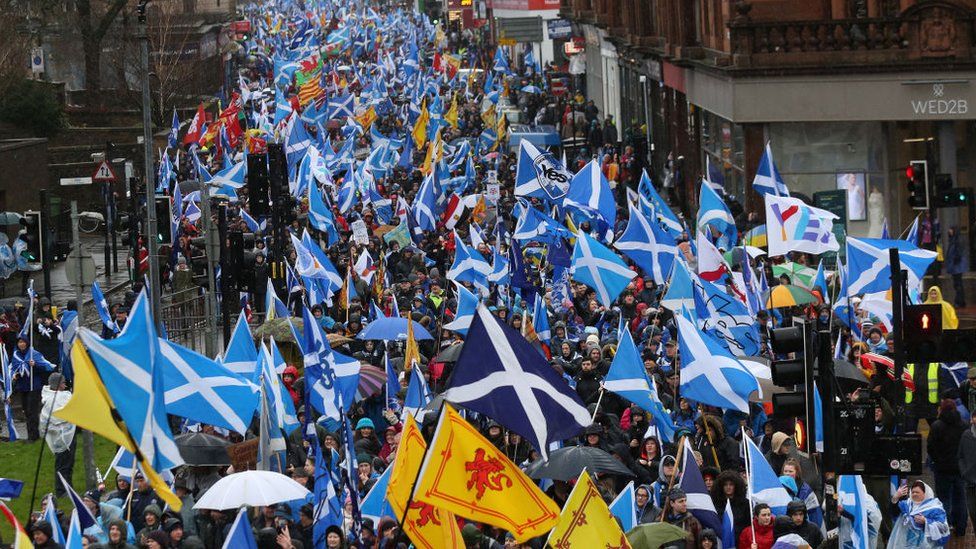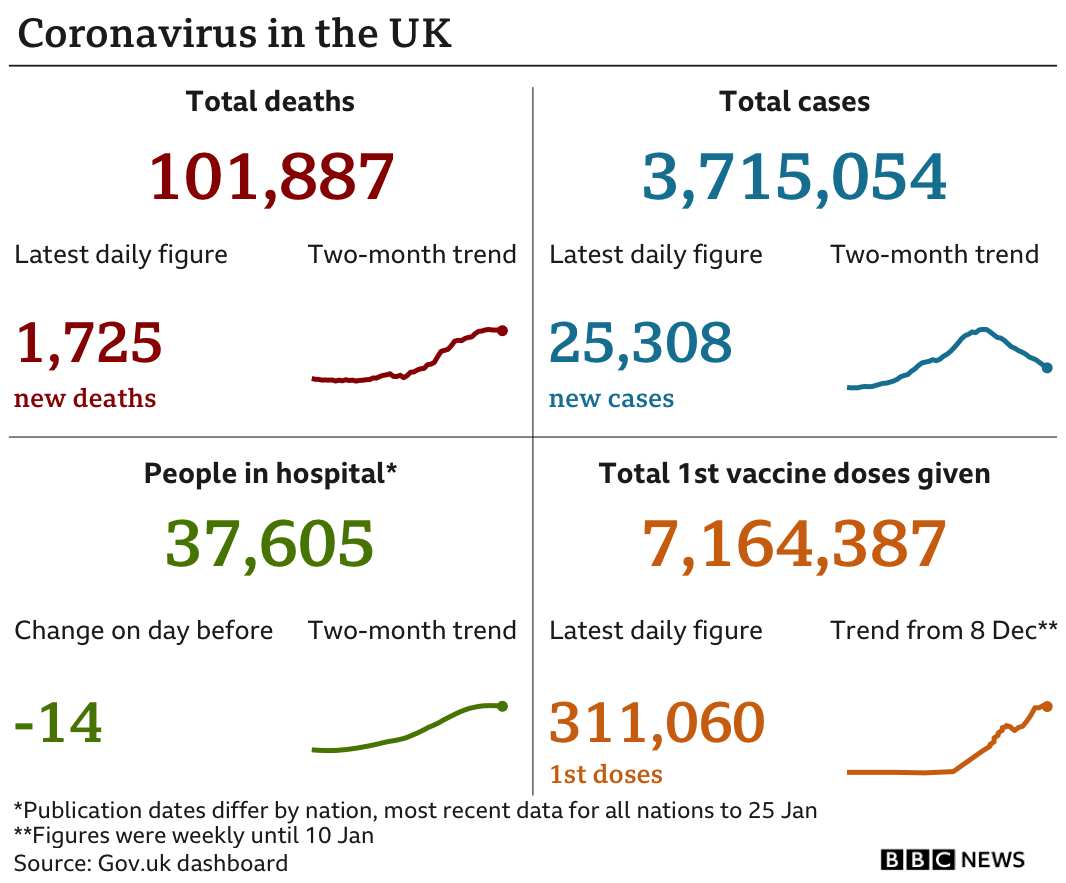Prime Minister Boris Johnson is due to visit Scotland on Thursday despite the country’s first minister questioning whether the trip is necessary.
Mr Johnson is expected to emphasise the strength of the UK working together in the fight against Covid-19.
He is also likely to thank staff involved in responding to the pandemic.
Scotland’s First Minister Nicola Sturgeon has questioned whether his trip is “essential”.
Asked at her daily coronavirus briefing on Wednesday how she felt about the expected visit while strict travel restrictions were in place, Ms Sturgeon replied she was “not ecstatic” about it.
She argued that leaders should abide by the same rules they impose on the general public, adding that she had herself rejected a suggested visit to a vaccine centre in Aberdeen for this reason.
Downing Street, however, insisted it was important for the prime minister to be “visible and accessible” across the whole of the UK during the pandemic.
‘Delivering’ for Scotland
Mr Johnson’s visit to Scotland is widely seen as being part of a “charm offensive” in response to polls indicating a rise in support for independence.
Ahead of his trip he said: “The great benefits of cooperation across the whole of the UK have never been clearer than since the beginning of this pandemic.
“We have pulled together to defeat the virus, providing £8.6bn to the Scottish government to support public services whilst also protecting the jobs of more than 930,000 citizens in Scotland.
“We have a vaccine programme developed in labs in Oxford being administered across the United Kingdom by our Armed Forces, who are helping to establish 80 new vaccine centres across Scotland.
“That’s how we are delivering for the people of Scotland so we can ensure the strongest possible recovery from the virus.”

It is a sign of these lockdown times that there is a bit of a row over whether the prime minister should be visiting Scotland at all on Thursday.
While London and Edinburgh debate whether the visit meets Covid guidelines, many unionists now believe making their case increasingly falls into the essential category.
For months, polls have suggested support for Scottish independence is higher than that for staying the UK.
We at the BBC like to be cautious around polls, but there is now a pattern: support for the Union looks weaker than ever.
There are two key reasons for the increase in support for independence, which come up time and again in conversations. Both are linked to Boris Johnson.
The first is Brexit. A comfortable majority of Scottish voters backed Remain in 2016 – and some of the increased support for independence appears to come from that group.
That’s unlikely to be helped by the fact that the most prominent Brexit backer is now prime minister.
The second reason is the way the pandemic has been handled. Health is a devolved issue, so the Scottish government has been making most of the big decisions on it for the past 10 months.
Although Scottish ministers admit mistakes have been made, polls suggest Scots are happy Ms Sturgeon is making the decisions and not Mr Johnson.

Under the current Covid regulations, people are only able to travel between Scotland and England for essential reasons, with similar regulations also in place to stop travel across council boundaries within Scotland.
In response to Ms Sturgeon’s criticism, a Downing Street spokesman said: “It remains the fact that it is a fundamental role of the PM to be the physical representative of the UK government.
“It is right that he is visible and accessible to businesses, communities and the public across all parts of the UK, especially during the pandemic.”

However, SNP MP Neale Hanvey described the trip as a “futile” attempt to bolster the union following a trend of polls suggesting more people now support independence than remaining in the UK.
On Sunday, the SNP revealed an 11-point “roadmap to a referendum” on Scottish independence, which sets out how the party intends to take forward its plan for another vote on the issue.
It says a “legal referendum” will be held after the pandemic if there is a pro-independence majority at Holyrood following May’s election.
And it says it will “vigorously oppose” any legal challenge from the UK government.
Mr Johnson has repeatedly stated his opposition to a referendum, and has suggested that another one should not be held for 40 years.
It is understood that his visit to Scotland was planned before the SNP published its roadmap.
Opposition parties have also accused Ms Sturgeon and the SNP of putting the push for independence ahead of the Covid pandemic.
It comes as the UK recorded a further 1,725 deaths within 28 days of a positive test, after the total number of coronavirus deaths passed 100,000 on Tuesday.
However, the average number of daily cases appears to be declining, with 25,308 new cases recorded on Wednesday, according to the latest government figures.
Meanwhile, more than 7.1 million people across the UK have had their first dose of a coronavirus vaccine.

Source: BBC
